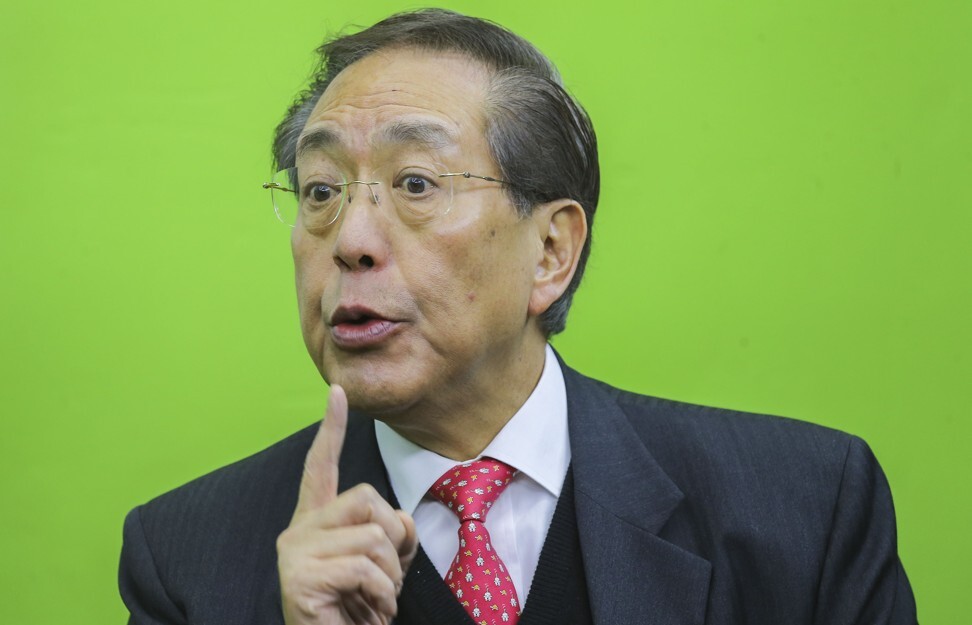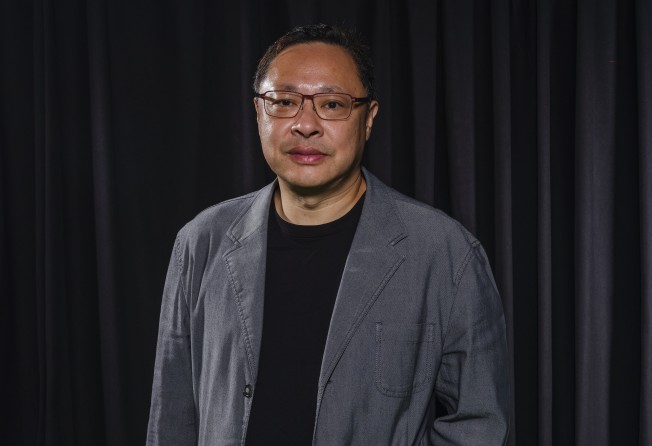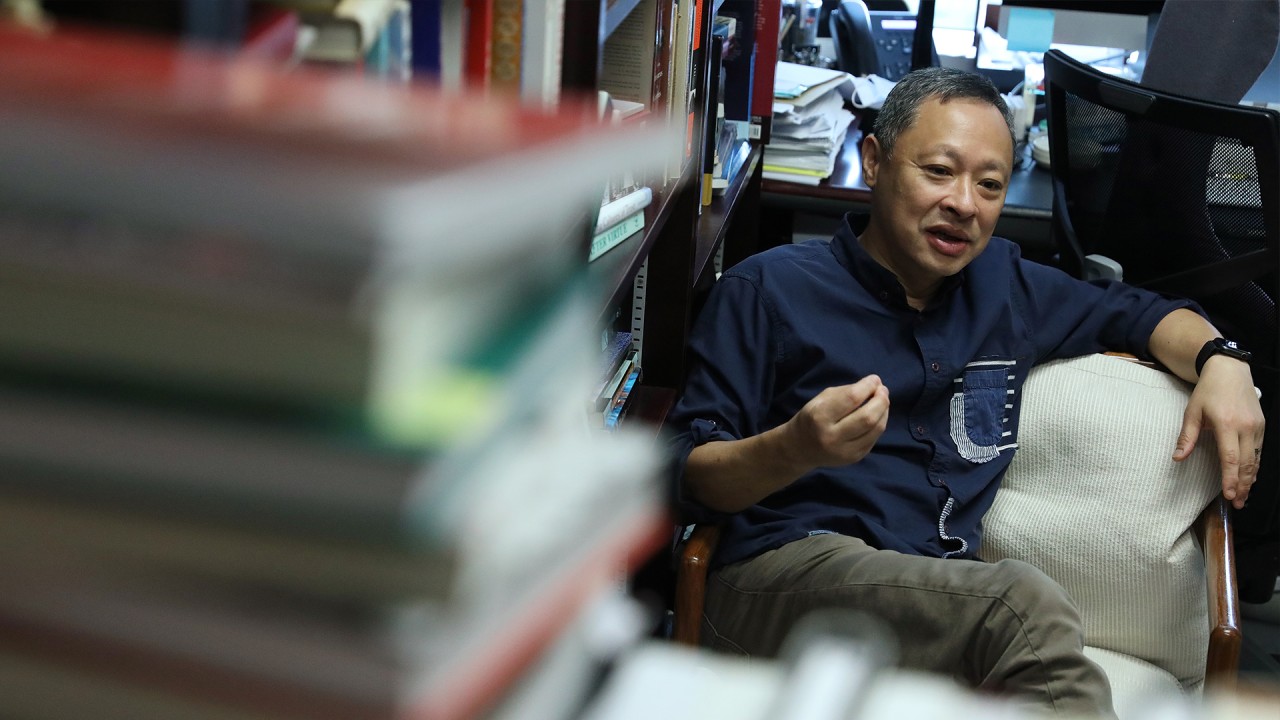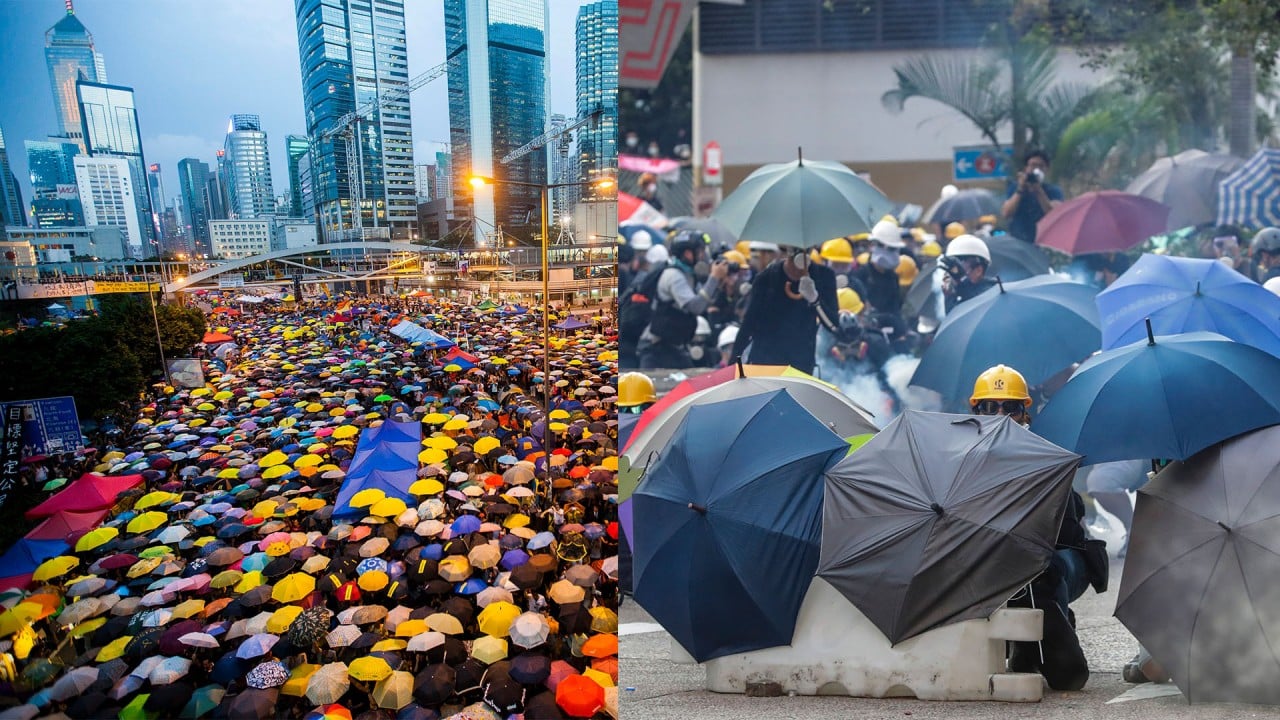
University of Hong Kong governing council chief defends Benny Tai sacking, rejects allegations of outside interference in the decision
- Occupy movement co-founder is a convicted criminal and had to go, governing council chief says
- Arthur Li denies decision to dismiss Tai over public nuisance offences from 2014 was political

The head of the University of Hong Kong body responsible for sacking Benny Tai Yiu-ting over his court convictions for the Occupy protest movement has rejected suggestions the decision was a result of political interference, as he declared the institution could not have the criminal on its staff roll.
In an exclusive interview with the Post, the chairman of HKU’s governing council Arthur Li Kwok-cheung said none of its members had been approached by outsiders or encountered other forms of meddling before the vote, insisting Tai’s dismissal strictly followed university procedures.
“It is not a political decision. It has got nothing to do with politics,” he said on Thursday. “[People] are trying to muddle [the situation] … by saying there is academic freedom at risk, this is political persecution. [This is] nothing of that sort.”
Legal scholar Tai was sentenced to 16 months in prison in April last year for two public nuisance charges related to the Occupy movement he co-founded in 2014 which sought greater democracy and brought several parts of the city to a standstill for 79 days. He has been on bail since last August pending an appeal.
The 56-year-old was immediately removed from his tenured position on Tuesday as an associate professor after the council – which has about two-thirds of its membership drawn from outside the university including government appointees – voted by 18 to 2 to fire him.
The council’s decision reversed an earlier recommendation by the university’s senate, where a majority of members are academics, which found that while Tai was guilty of misconduct there were insufficient grounds for his dismissal.
In response, Tai said the decision was made “by an authority beyond the university through its agents” and one that marked the end of the city’s academic freedom.

Li, a member of Chief Executive Carrie Lam Cheng Yuet-ngor’s cabinet, dismissed Tai’s claims, pointing to the voting record showing that of the 20 council members making the decision, a majority representing the university supported sacking Tai.
“Out of the six members, five internal members of the university voted against Benny Tai. Can you say that is an act of outside agents acting on [outsider’s] behalf?” said Li. “And I can tell you, none of my council members, as far as I know, and as far as I am aware, had been approached by anybody to vote in any way.”
Li, an educator and surgeon who previously served as a secretary for education and manpower of the city’s government, as well as vice-chancellor of Chinese University, also rejected the assertions that the council had ignored the senate’s recommendation.
“[The] council, first of all, is not a rubber stamp of the senate. [It] has an overall responsibility of looking after the whole university, and considering all aspects of the university and not just academic matters,” he said.
“We agree there is no academic good cause to dismiss him, but he is a convicted criminal, and we can’t have a convicted criminal on our staff … We examined every angle. Is there any way that this is unfair to him? Is there any way that this is not properly conducted?”

02:13
University of Hong Kong sacks Occupy leader Benny Tai
In written submissions to the senate and council during the inquiry, Tai argued the Occupy movement was of a peaceful nature, his acts were “well intentioned”, and there was “no abuse of power or exploitation” of his teaching position.
Li said: “I am not going to go into [details on] what happened at the Occupy Central [movement], did anyone get hurt? I mean that is not our job. Our job is to look at the facts [of his conviction]. He could have the best intention of whatever he wanted to do.”
Both HKU’s student union and chair professor of law Johannes Chan Man-mun, who represented Tai in the disciplinary procedure, believed the council had made a “political decision”.
Brushing aside accusations that Tai’s dismissal was politically motivated, Li said: “You have a criminal as a member of staff, are you going to put up with it, or are you going to do something about it?
“And if you do something about it, it’s because of the criminal act, and it’s got nothing to do with academic freedom or freedom of speech.
“If the court found him guilty of a criminal offence, and sentenced him to a 16 months of imprisonment, [and] you turn around and say this is political persecution, then you’re accusing the court of political persecution.”

08:41
Five years after Occupy: comparing Hong Kong’s 2014 movement with the 2019 extradition bill protests
Both Tai and the university’s alumni concern group also argued that the inquiry should wait until the appeal process had run its course, or else it could be “violating procedural justice”. His appeal is due to be heard in March next year.
Li said: “If he loses [the appeal], he can go to the Court of Final Appeal, and that would take another year or two years. We have checked with our legal advisor what the situation is. The situation is very simple: he is a criminal today.
“If he [Tai] is successful in his appeal against his conviction, we will revisit the issue … There are cases before Benny Tai where a staff [member] has been found guilty and has been in some way dismissed. So he is not the only one.”
In a letter to faculty staff on Wednesday, HKU law dean Professor Fu Hualing said he was “saddened” by Tai’s dismissal, describing it as “unfortunate and regrettable”.
Expressing his own dismay over the situation, Li said: “I’m very sad that we have been put in such a position, that we have to come out and face this situation. Given the choice, I would not have wanted it.”
Tai said on Wednesday he had decided to lodge an appeal against his dismissal with the university’s chancellor – a post which is by default held by the city’s leader – although he admitted it would be futile. He added that his legal team was also considering judicial review.
Li said such the appeal to the chief executive would be out of the council’s hands, while he believed a judicial review would likely only look into whether proper procedures had been followed during the inquiry.
Over the past weeks, academics, students and critics had raised concerns over the national security law’s impact on local universities’ academic freedom. Li said he welcomed diverse views and different opinions while “keeping within the bounds of the law”.
“We will follow the way that we have been doing things. We allow different diverse views, we allow people to express their thoughts freely … and we encourage open debate. That’s what a university is all about,” he said.